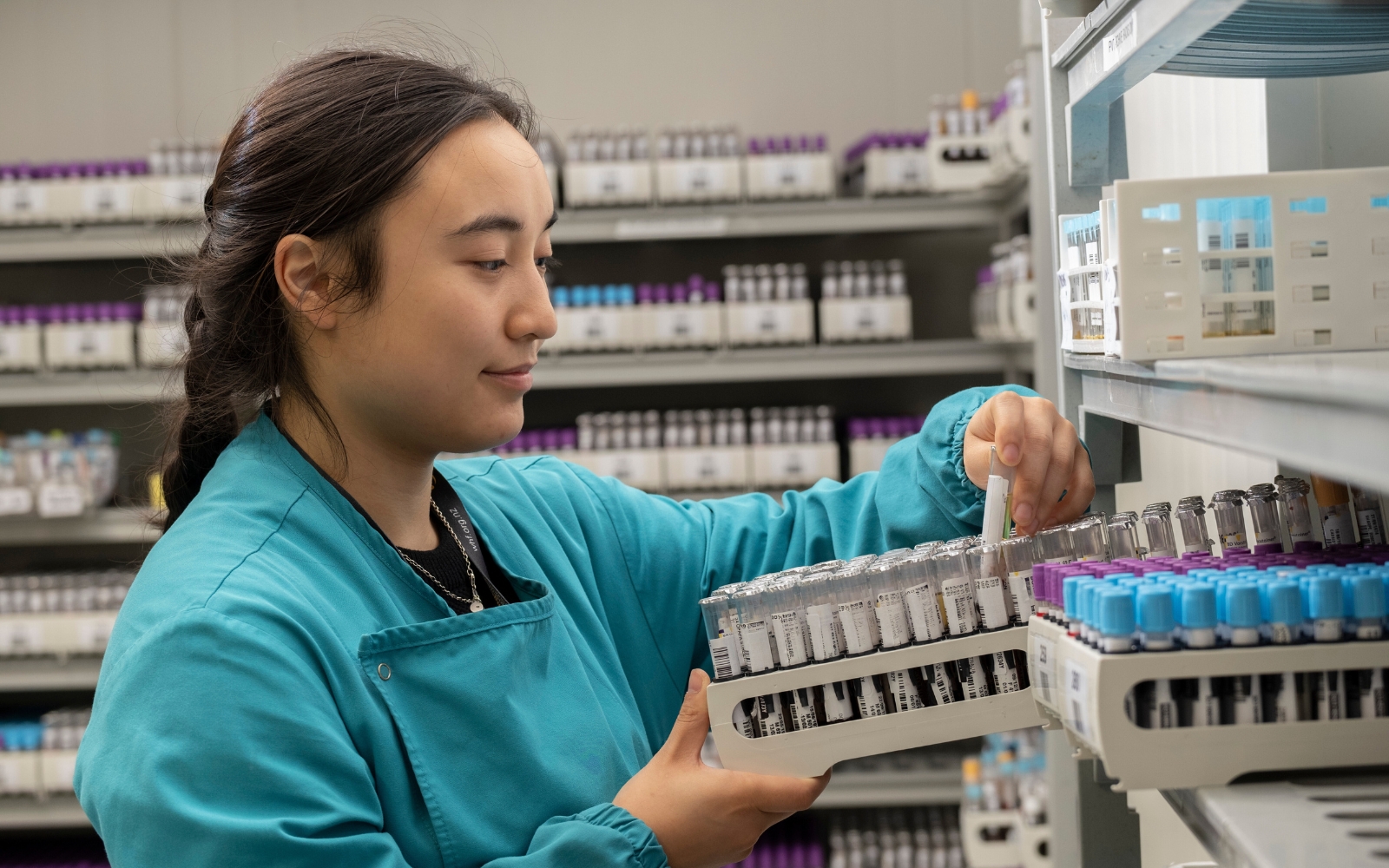Low Vitamin D levels are an increasingly common issue for people in New Zealand and around the world.
The implications range from muscle and skeletal soreness and weakness, fatigue, through to various chronic diseases, and as a result, the increased demand for testing is placing pressure on laboratories, affecting staff workload and financial resources.
A new study by Awanui Scientist Leigh Lauv is examining the factors driving the increased demand for Vitamin D tests and potential strategies to prevent these tests being ordered unnecessarily.
“Vitamin D is essential for optimising bone health and supporting various physiological functions, and while this heightened awareness is positive, it brings challenges for both patients and the lab. GPs will often order vitamin D tests when they could simply prescribe supplements, leading to higher costs for patients and a greater demand on the lab’s resources,” explains Leigh who is with the Biochemistry team at Wellington Regional Hospital.
Leigh’s research aims to develop effective demand management strategies to alleviate this strain and provide guidance to health professionals to be more cautious when requesting a test. This involves studying test frequency and volumes, analysing cost implications for patients and providers, and improving lab efficiency.
Leigh joined Awanui Labs in 2022 after completing her bachelor’s degree in medical laboratory science at Otago University and is now working towards a Post-Graduate Diploma with support from the Awanui Education Scholarship.
In collaboration with her Head of Department Philippa Holliday, and Clinical Lead for Chemical Pathology Melissa Yessl, Leigh’s project was inspired by a suggestion to explore Vitamin D demand management.
“My diploma includes the research project where I will be surveying and interviewing requestors to understand their reasons for ordering Vitamin D tests and analysing the frequency and patterns of patient test data at our Auckland, Wellington, and Dunedin labs from the past five years.
“The project includes evaluating the current tools and guidelines for ordering tests and patient demographics to identify factors contributing to inappropriate ordering and proposing recommended changes and improvements the lab could make to prevent unnecessary ordering.”
Leigh aims for her diploma research to lead on to a master’s degree and continue her study into vitamin D testing as a thesis at Otago University.
“This project addresses the challenges associated with the rising demand for vitamin D testing and aims to improve guidelines for GPs and requesters,” says Leigh.
“The insights gained could serve as a model for similar challenges in other areas of the lab, potentially leading to more efficient, cost-effective and patient-centred outcomes for our sector and the broader healthcare system.”
